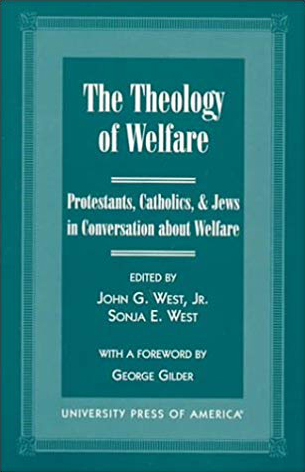

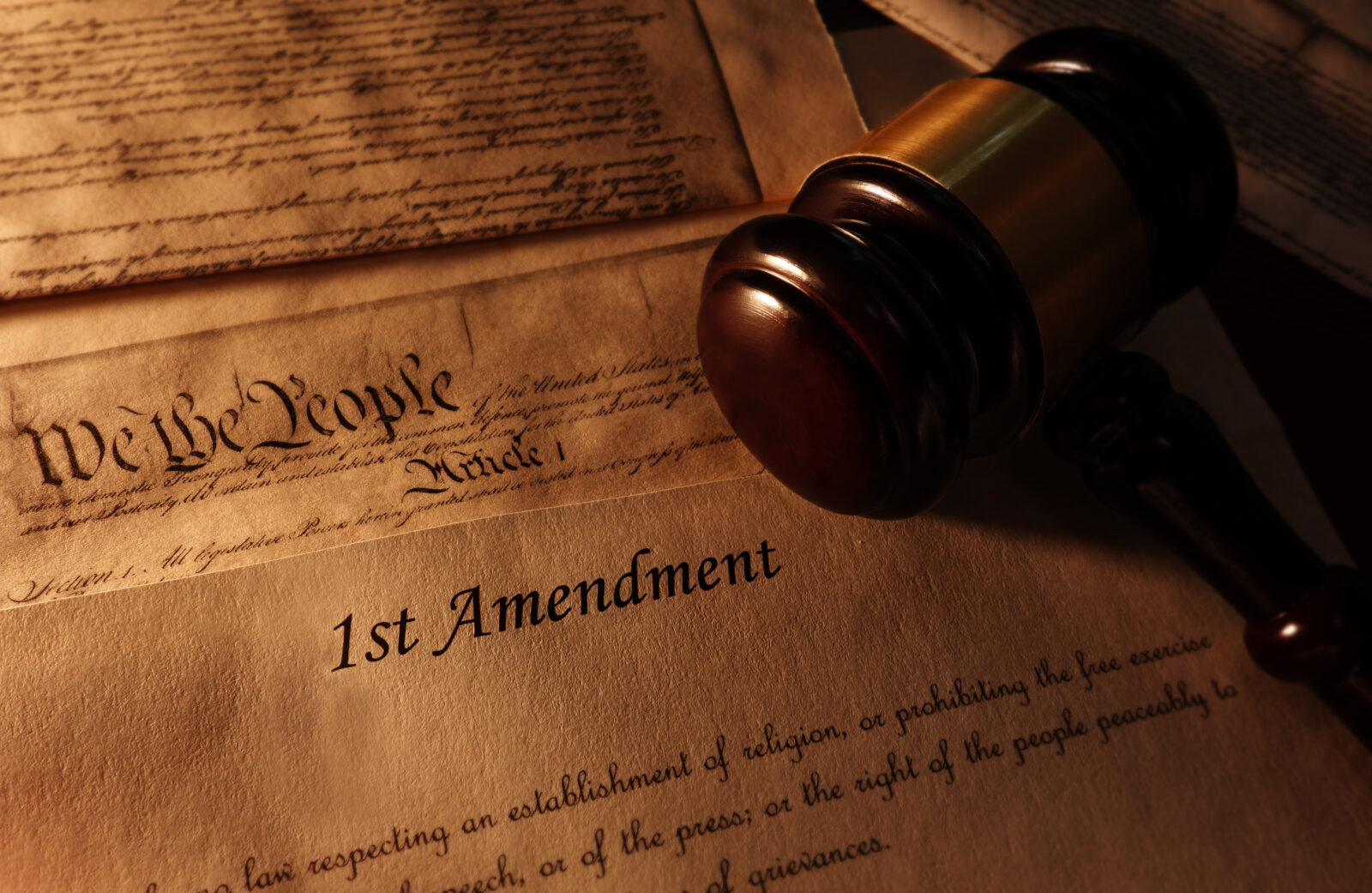
Sunday Mails: The First National Debate over the Religion Clauses of the First Amendment
The Sunday mails debate during the early nineteenth century was the first national controversy to focus on the meaning of the religion clauses of the First Amendment. The debate was sparked by the practice of transporting and delivering mail on Sundays. While the subject might seem arcane today, the issues underlying the controversy reached to the very core of American Read More ›
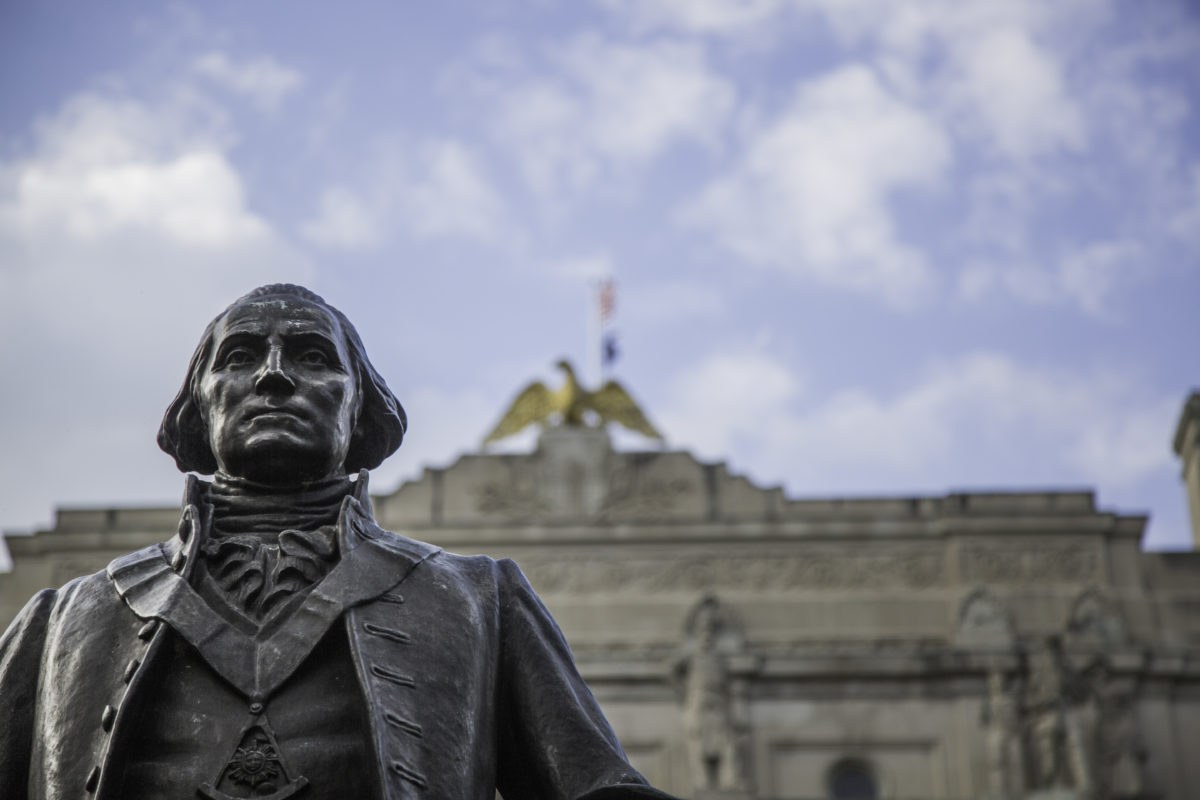
George Washington and the Religious Impulse
“Of all the dispositions and habits which lead to political prosperity,” wrote George Washington, “Religion and morality are indispensable supports.’1 These words are perhaps George Washington’s best known statement concerning religion, and since their publication in 1796, they have been invoked time and again by defenders of religion in American public life. During the nineteenth century, evangelical Christians active in Read More ›
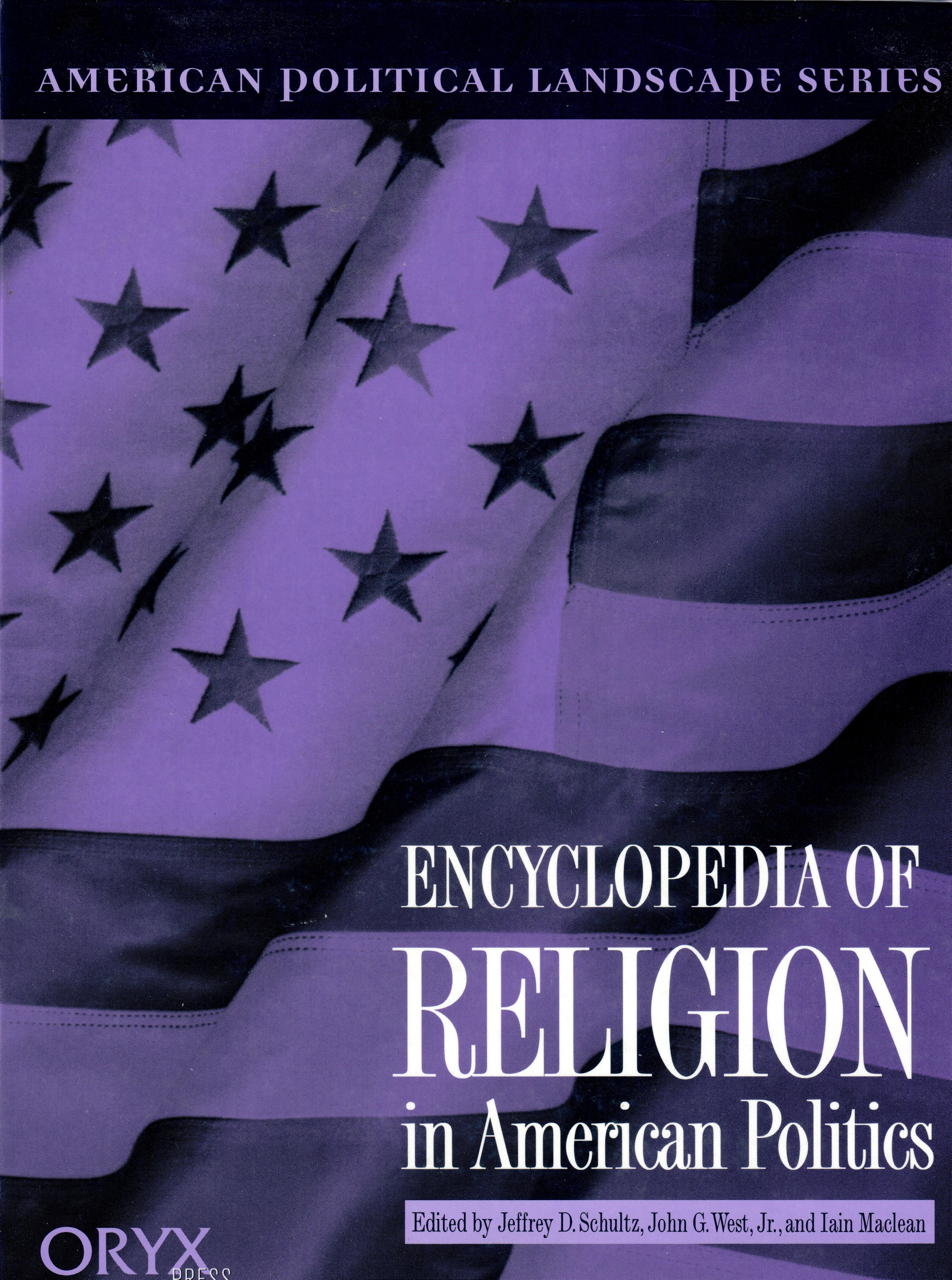
Encyclopedia of Religion in American Politics
Today, such issues as abortion, capital punishment, sex education, racism, prayer in public schools, and family values keep religion and politics closely entwined in American public life. This encyclopedia is an A-to-Z listing of a broad range of topics related to religious issues and politics, ranging from the religious freedom sought by the Pilgrims in the 1620s to the rise Read More ›
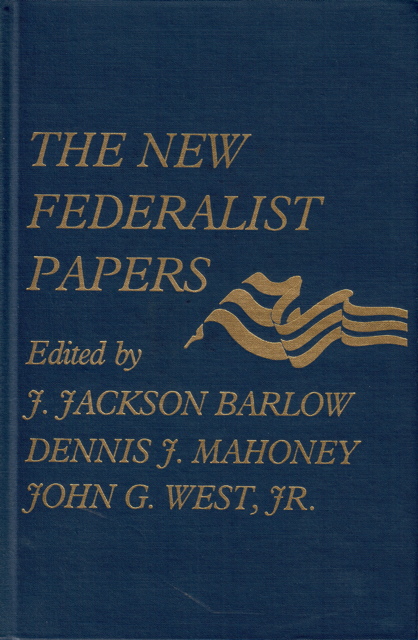
The New Federalist Papers
With over sixty contributing authors, this volume brings together the best of American constitutional scholarship for a comprehensive and provocative discussion of the Constitution’s history, its principles and its current meaning. Contributing authors to the book range from historians and political scientists to Congressmen and Supreme Court Justices. Some of the better-known contributors include former Speaker of the House Tip Read More ›
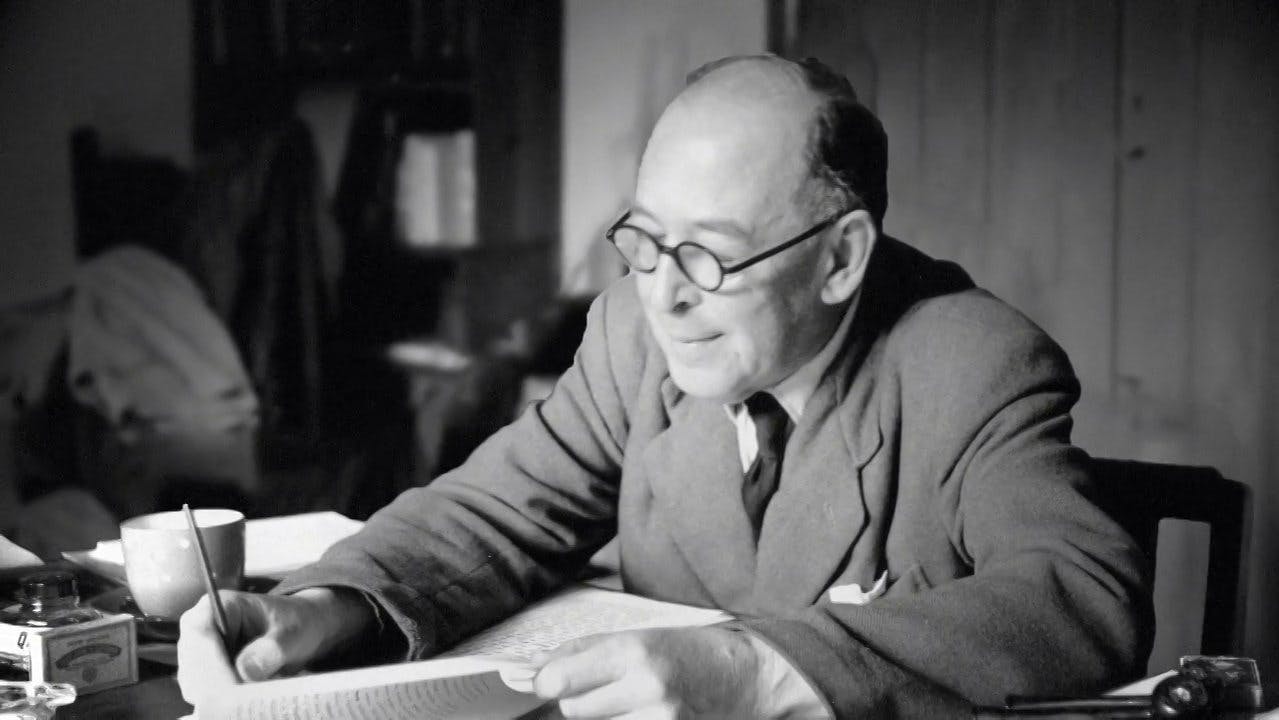
Publication History of C.S. Lewis’s Mere Christianity

Public Life in the Shadowlands
Even before the film Shadowlands, C. S. Lewis was probably the most widely recognized Christian thinker of the twentieth century. By the end of the 1980s, his books already had sold more than seventy million copies, an achievement that surely places Lewis among the best-selling authors of all time.
Lewis is most appreciated today for his superlative imagination and his lucid defense of Christian orthodoxy. But he also was a keen observer of social and political affairs. As Americans struggle to define the proper relationship between religious faith, moral principle, and political action, there is much that they might learn from this inimitable British academic.
Turning to Lewis for advice about politics is undeniably a bit paradoxical. According to stepson David Gresham, Lewis was skeptical of politicians and not really interested in current events.1 He even observed that he had no use for the “great issues” of his day. “Lord! how I loathe great issues,” he wrote in 1940. “Could one start a Stagnation Party — which at General Elections would boast that during its term of office no event of the least importance had taken place?”2 Lewis likewise avoided making partisan commitments. During the 1930s, he told a student that he refrained from donating money “to anything that had a directly political implication”3; and in 1951, he declined a title offered him by Prime Minister Winston Churchill (whom he greatly admired), because he feared that critics would seize upon the honor as evidence that his “religious writings are all covert anti-Leftist propaganda….”4
Despite this seeming indifference to political life, Lewis wrote about a variety of political topics, including crime, war, censorship, capital punishment, conscription, socialism, vivisection, the welfare state and the atomic bomb.5 When he discussed these matters, however, his primary concern was not public policy. Political problems of the day interested him only insofar as they involved matters that endured. Looked at in this light, Lewis’s habit of writing about politics and his simultaneous detachment from the political arena are perfectly understandable. Uninterested in the partisan passions of the moment, he always tried to find the permanent in the political. As a result, much of what he has to say about public life remains acutely relevant. Indeed, it is the very timelessness of Lewis’s writings that makes them so timely.
Public Morality Based on Public Principles
Of all the political lessons that can be learned from Lewis, perhaps the most important is that public morality should be founded squarely upon public principles. Unlike some Christian conservatives, Lewis did not believe that civic morality ultimately had to be grounded in the Bible to be legitimate. Nor did he believe that arguments about social morality were fundamentally arguments about religion.
Instead, Lewis championed the time-honored idea of natural law — the belief that the fundamental maxims of civic morality are “written on the hearts” (Romans 2:14) of all human beings by God through reason and conscience. This natural moral code cannot be escaped, said Lewis; it is the source from which all moral judgments spring. Its cardinal virtues — justice, honesty, good faith, magnanimity, beneficence, mercy — are known to be true independently of experience. According to Lewis, these basic precepts form a moral common ground that undergirds all civilized societies, a point he illustrated in his book The Abolition of Man by cataloguing similar ethical injunctions from some of the world’s major civilizations.
Lewis was aware that some Christians objected to natural law because they thought it detracted from the dignity of revealed religion. But he could not accept their view. Far from contradicting Christianity, he argued, natural law is actually presupposed by it. Lewis agreed that Christianity deepened one’s ethical understanding. But he was insistent that “Christian ethics” not be regarded as “a radically new thing.” Pointing out that a convert to Christianity “accept[s] the forgiveness of sins,” he asked:
But of sins against what Law? Some new law promulgated by the Christians? But that is nonsensical. It would be the mockery of a tyrant to forgive a man for doing what had never been forbidden until the very moment at which the forgiveness was announced. The idea…that Christianity brought a new ethical code into the world is a grave error. If it had done so, then we should have to conclude that all who first preached it wholly misunderstood their own message: for all of them, its Founder, His precursor, His apostles, came demanding repentance and offering forgiveness, a demand and an offer both meaningless except on the assumption of a moral law already known and already broken.6
The practical political consequences of Lewis’s understanding of morality are considerable. The present controversy over religion in politics largely hinges on the assumption that the morality espoused by conservative Christians cannot be justified apart from the Bible, and hence it is illegitimate as a guide to secular policy. But according to Lewis, this is a red herring. One does not need to accept the authority of the Bible to know that theft and slander are wrong, or that honoring one’s commitment to a spouse or child is a good thing. Traditional morality of the type we find in the Bible is also reasonable morality, the morality of common sense. Thus, as Christians, we should not be afraid to apply our moral principles to politics. Instead, we should be willing and able to defend our principles as supported by reason as well as revelation. Civic morality is not the peculiar domain of religion, and Christians who wish to be politically effective (as well as theologically sound) should drive this point home. It is one of the best ways for them to disarm their critics.
The Importance of Being Prudent
Natural law provides a moral common ground for all citizens to enter politics as equals, but it does not provide simple-minded solutions to specific political problems. Nor did Lewis claim that it would. Lewis understood that being morally right is not the same thing as being politically bright. Translating moral principles into public policy requires something more than merely the right moral principles. It requires the virtue of prudence, which Lewis aptly defined as “practical common sense, taking the trouble to think out what you are doing and what is likely to come of it.”78 The importance of prudence is a second lesson about politics that might be gleaned from Lewis.
Read More ›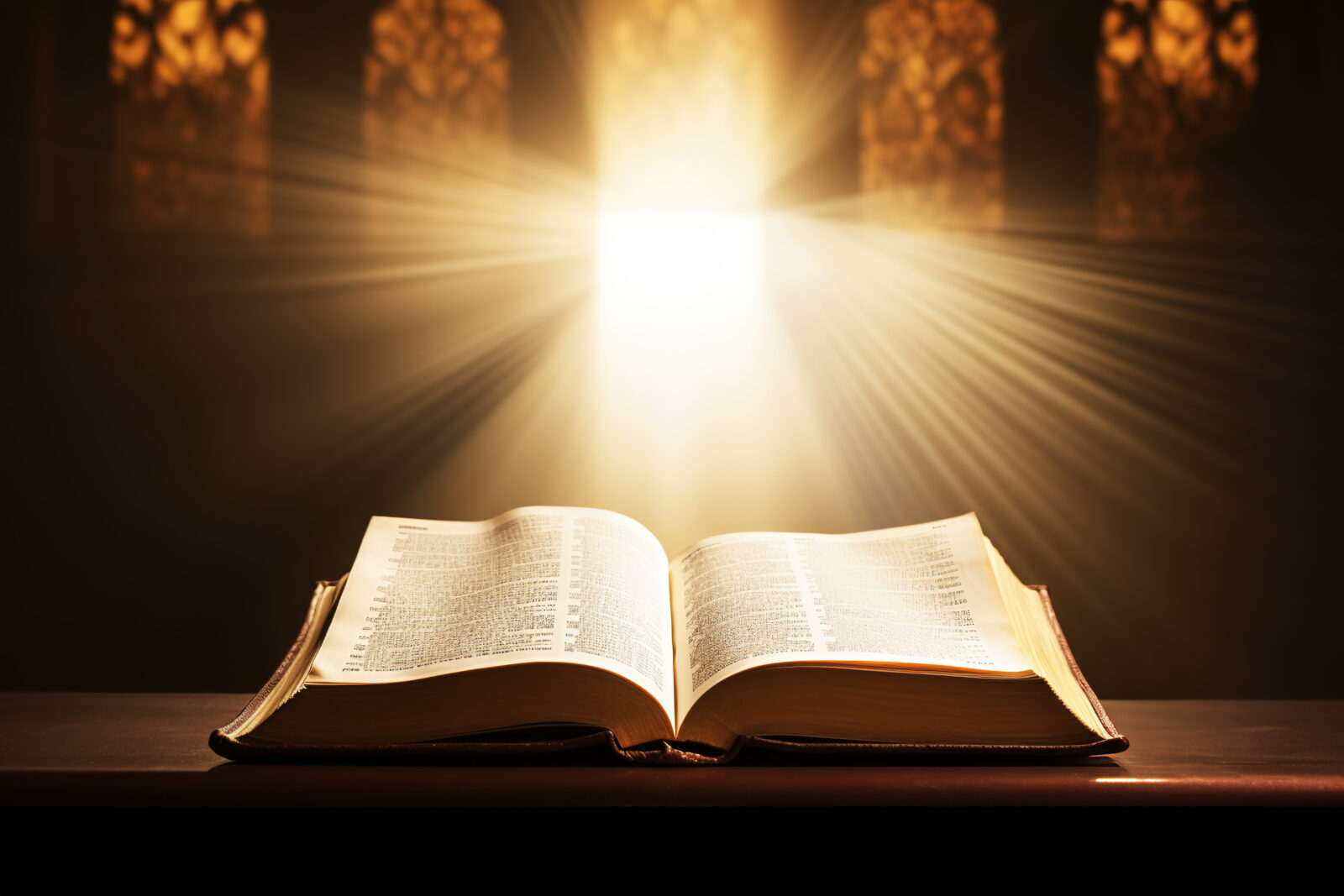
The Peril and Promise of Christians in Politics
With another presidential election fast approaching, secularists are once again fanning the flames of fear against politically conservative Christians. “I can’t remember a time when the danger to civil liberties and fundamental constitutional rights was more extreme or more pervasive than it is today,” writes Ira Glasser, executive director of the American Civil Liberties Union. Glasser goes on to accuse Read More ›
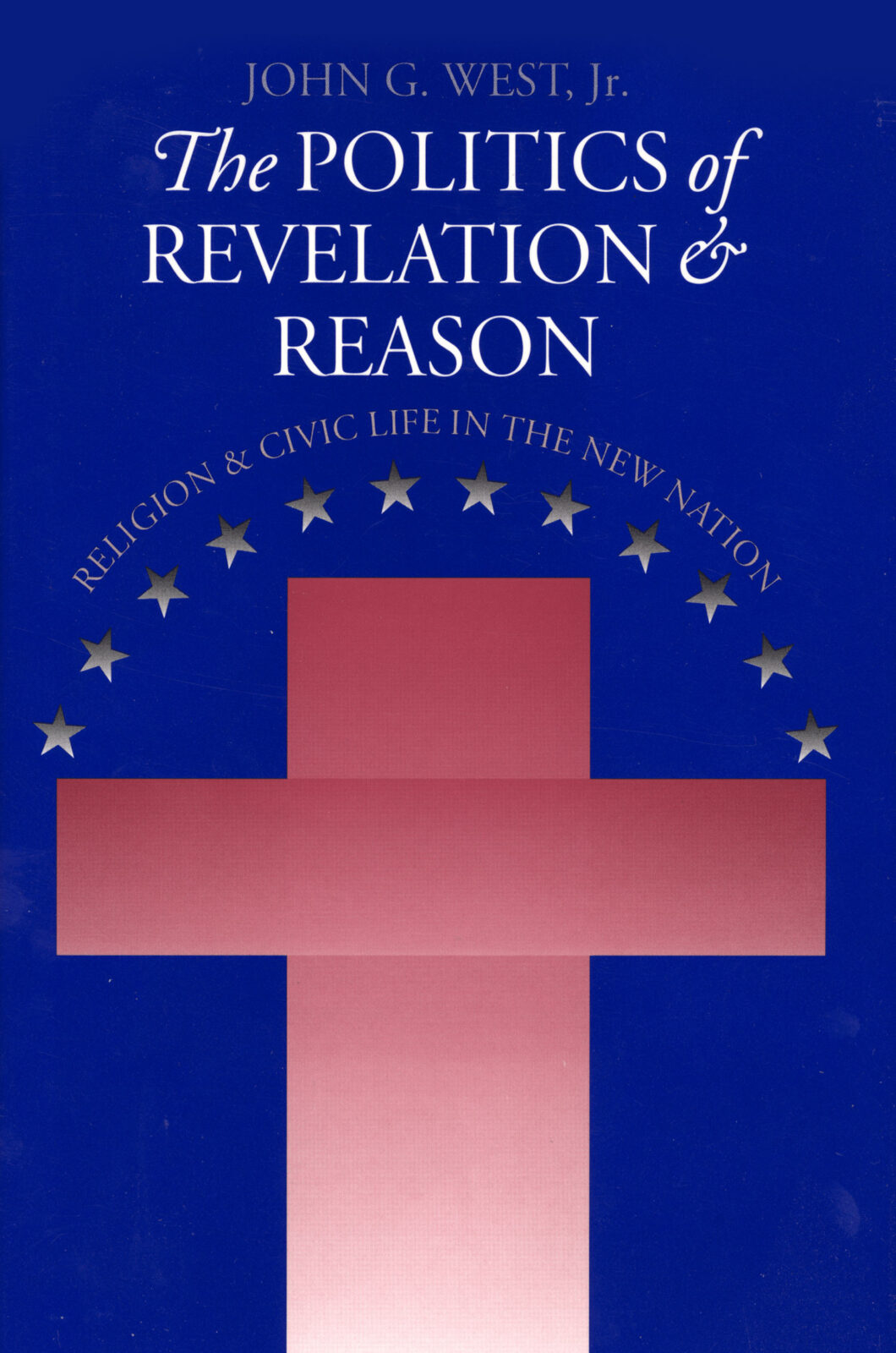
The Politics of Revelation and Reason

Church Without State
When Alexis de Tocqueville arrived in United States in 1831, he was struck by how Americans were “forever forming associations.” Tocqueville found especially noteworthy the myriad of civic associations that Americans organized for moral and educational purposes. Instead of looking to the government for help, publicly-spirited citizens sought to solve societal problems on their own. What Tocqueville may not have Read More ›